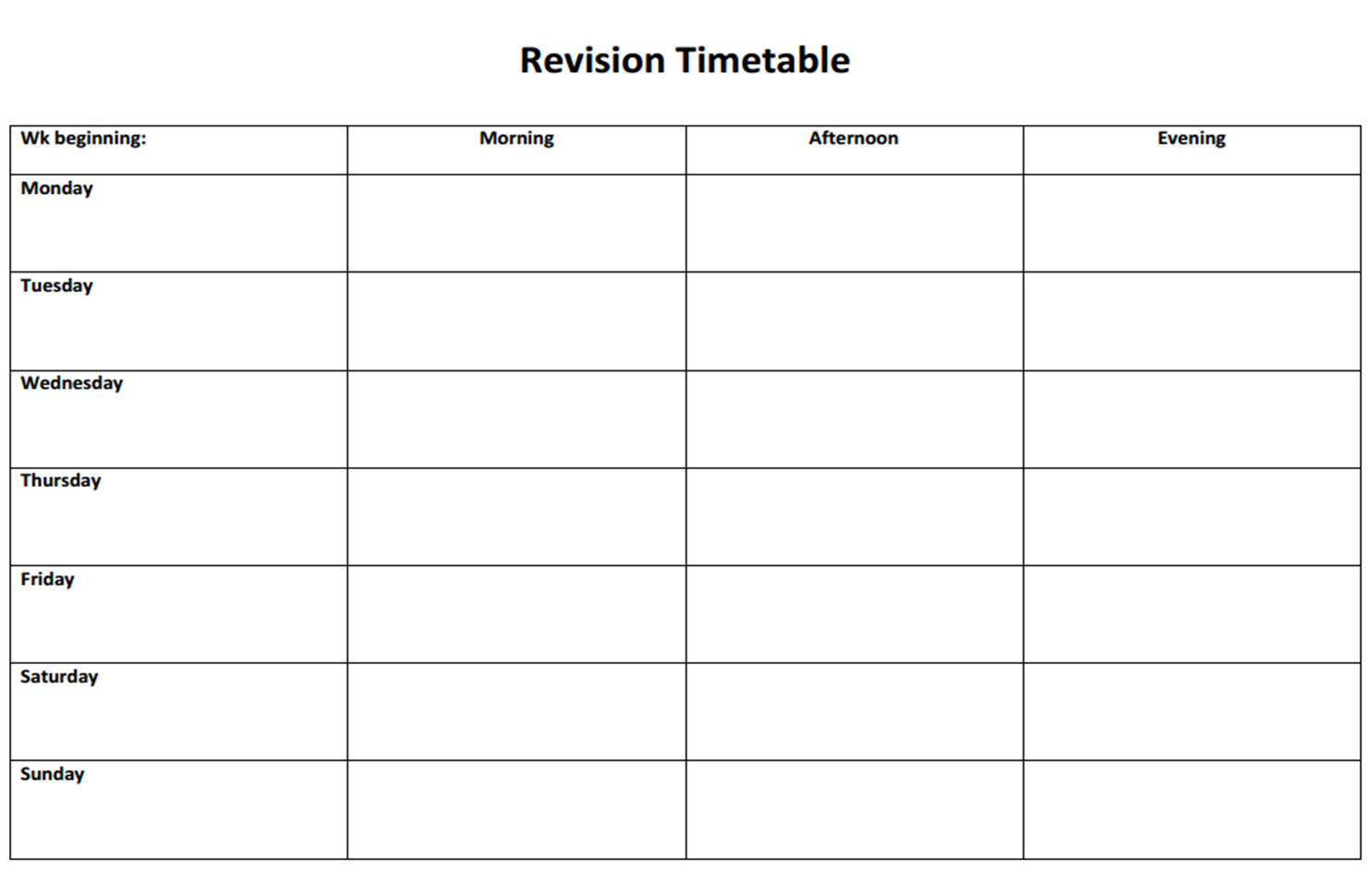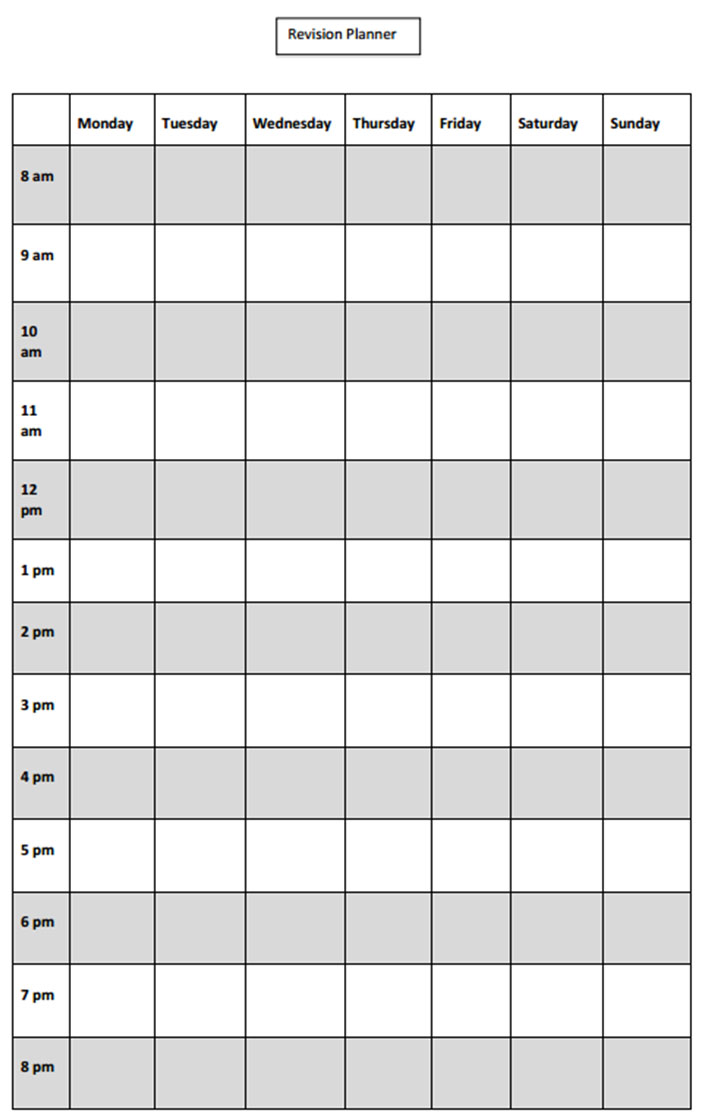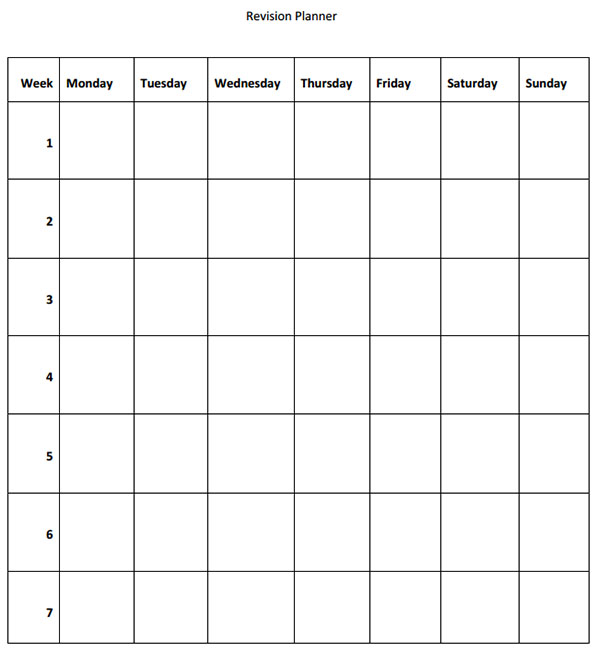Revision timetables
These are useful and effective tools that can help you prepare for exams and achieve the grades you deserve. Some people prefer A4 sized daily or weekly timetables whilst others prefer larger wall sized charts that cover a month long period. You should choose whatever works best for you.
There are example revision timetable templates on the campus website which you can use to help organise your revision periods.
Tips on making a revision timetable:
- When compiling a schedule try to be as realistic as possible. Do not try to do too much in your day with a timetable that you have no real chance of completing.
- Make a list of the subjects that you need to revise for between now and your exams.
- Work out which subjects have the most content that needs to be revised.
- Concentrate on those specific topics or modules that you have the most difficulty with.
- Break down major revision subjects into smaller parts; this can help you make your studying more precise.
- There are a number of free websites that allow you to produce your own online revision planner, such as https://getrevising.co.uk/
- Ensure that you include break times during the day, these are important to help you unwind and to make sure you don’t burn yourself out.
- Work out when you ‘study best’, for instance some people are able to concentrate better in the morning. Then use these times to study those topics that require the most effort and energy.
- Do not leave your most difficult or hardest subjects till the end of the day. Instead try to get these out of the way early on.
- After completing a revision period cross it off from your timetable. This will help you to feel a sense of achievement.
- At the end of each week assess your performance and change your plans accordingly.
- Consider using different coloured pens to highlight specific classes or rank subjects according to importance. However if you feel you may be changing things around then use a simple pencil.
- Keep your timetable flexible and be ready to change it if circumstances change.
- Try not to spend the whole day revising one subject.Most experts suggest studying in slots of 40 minutes and then taking a break before your next session.
3 examples of revision timetables:
(all templates can be found on our campus website) 



